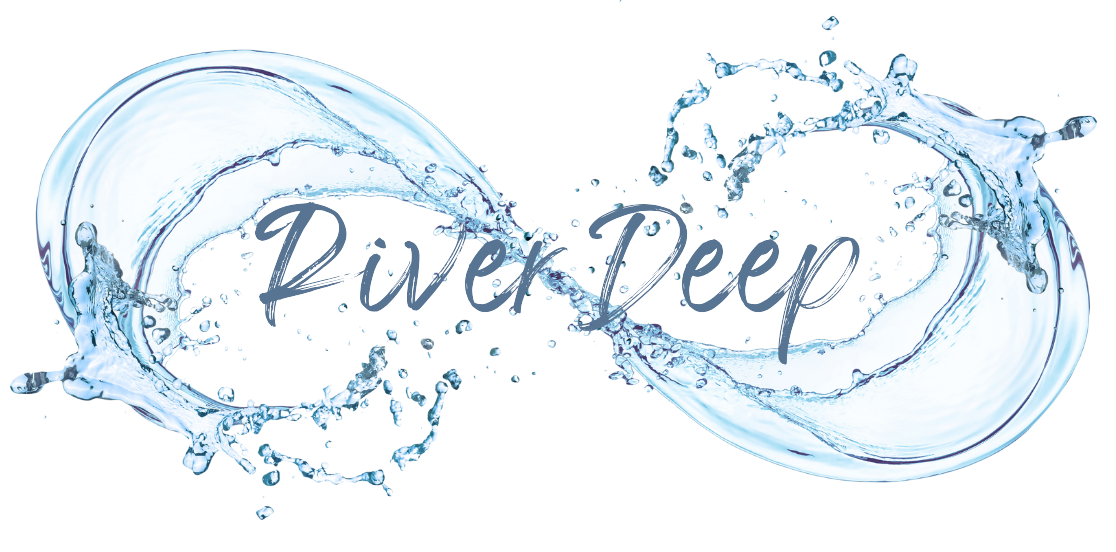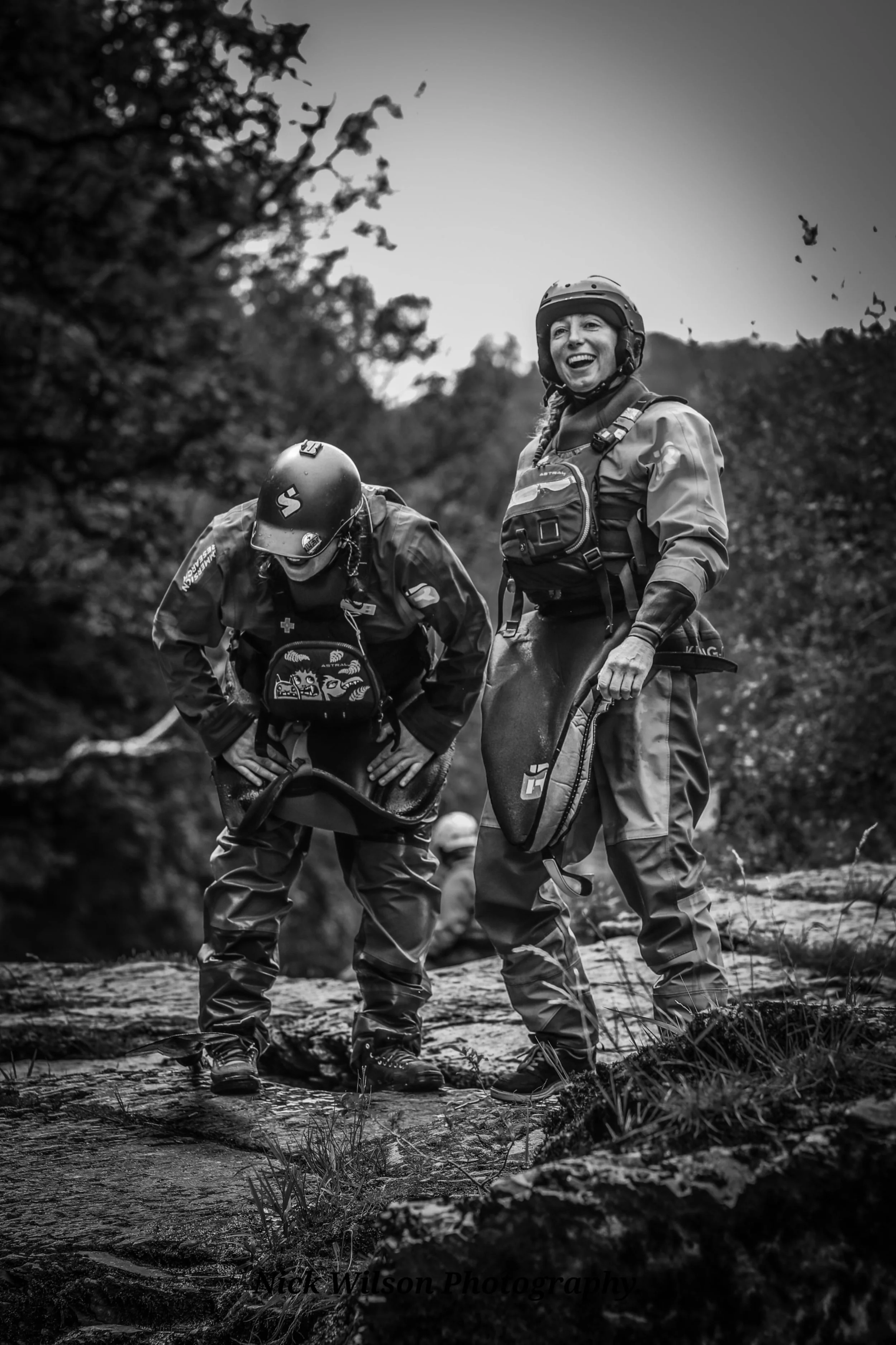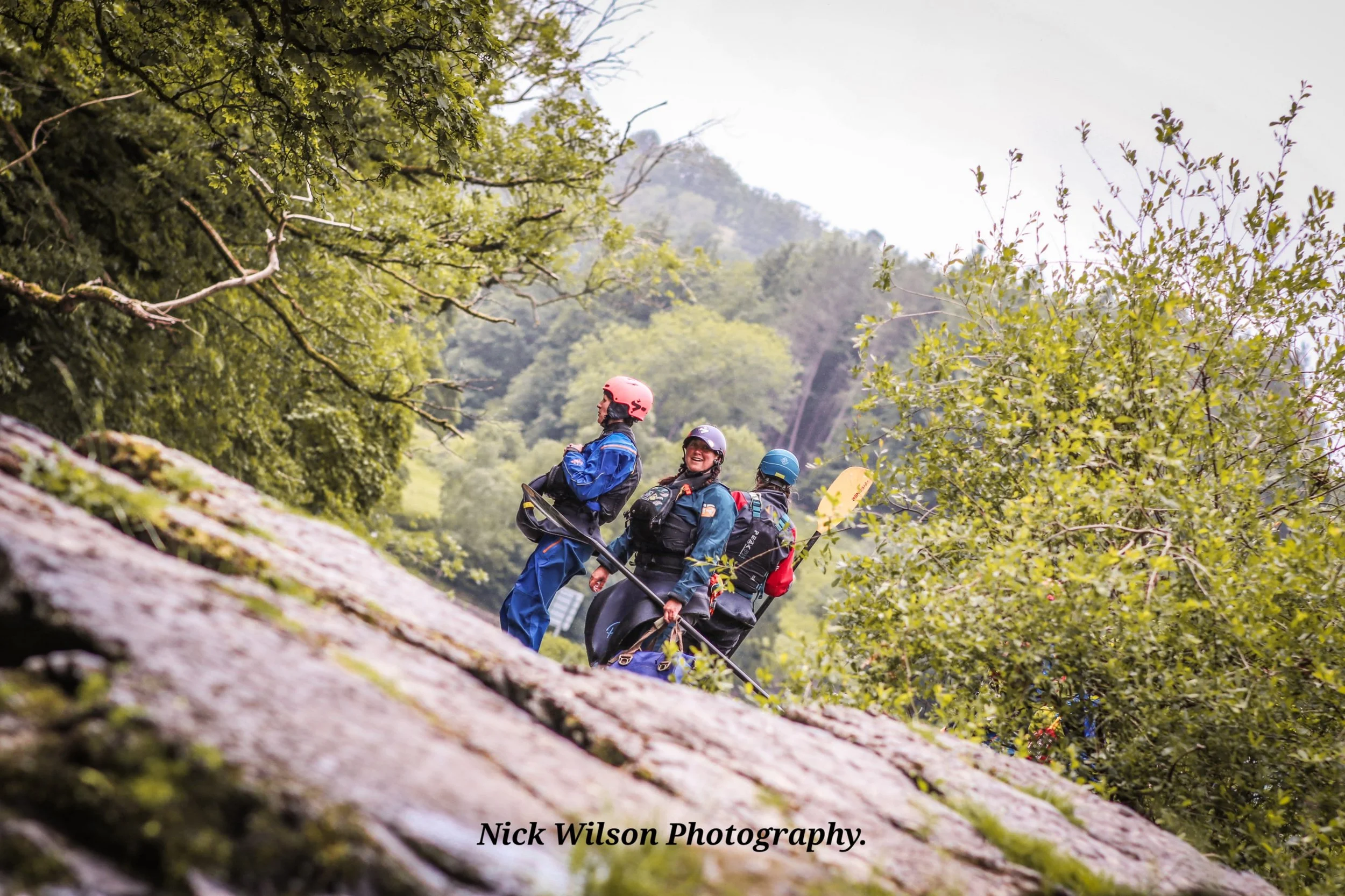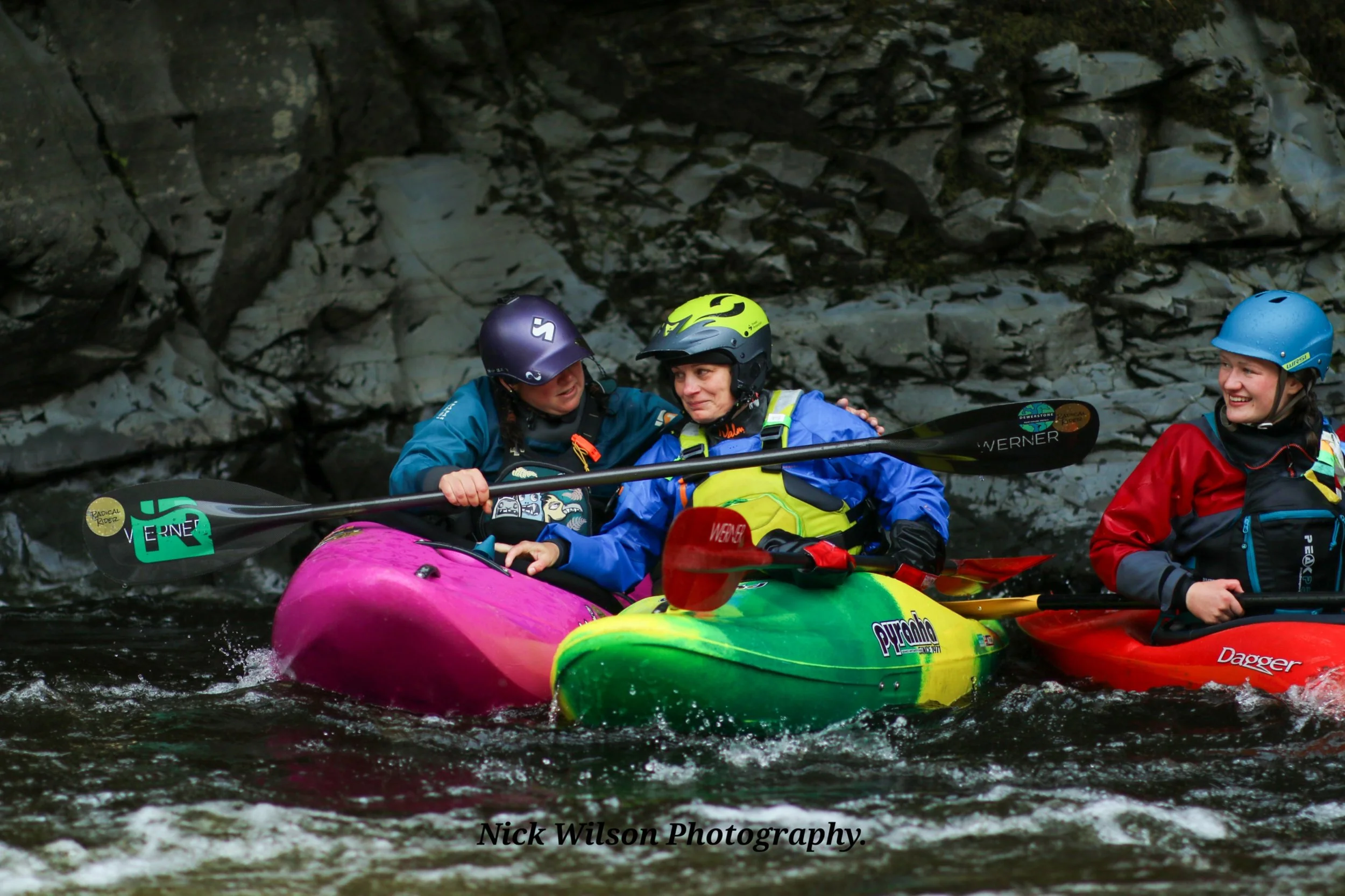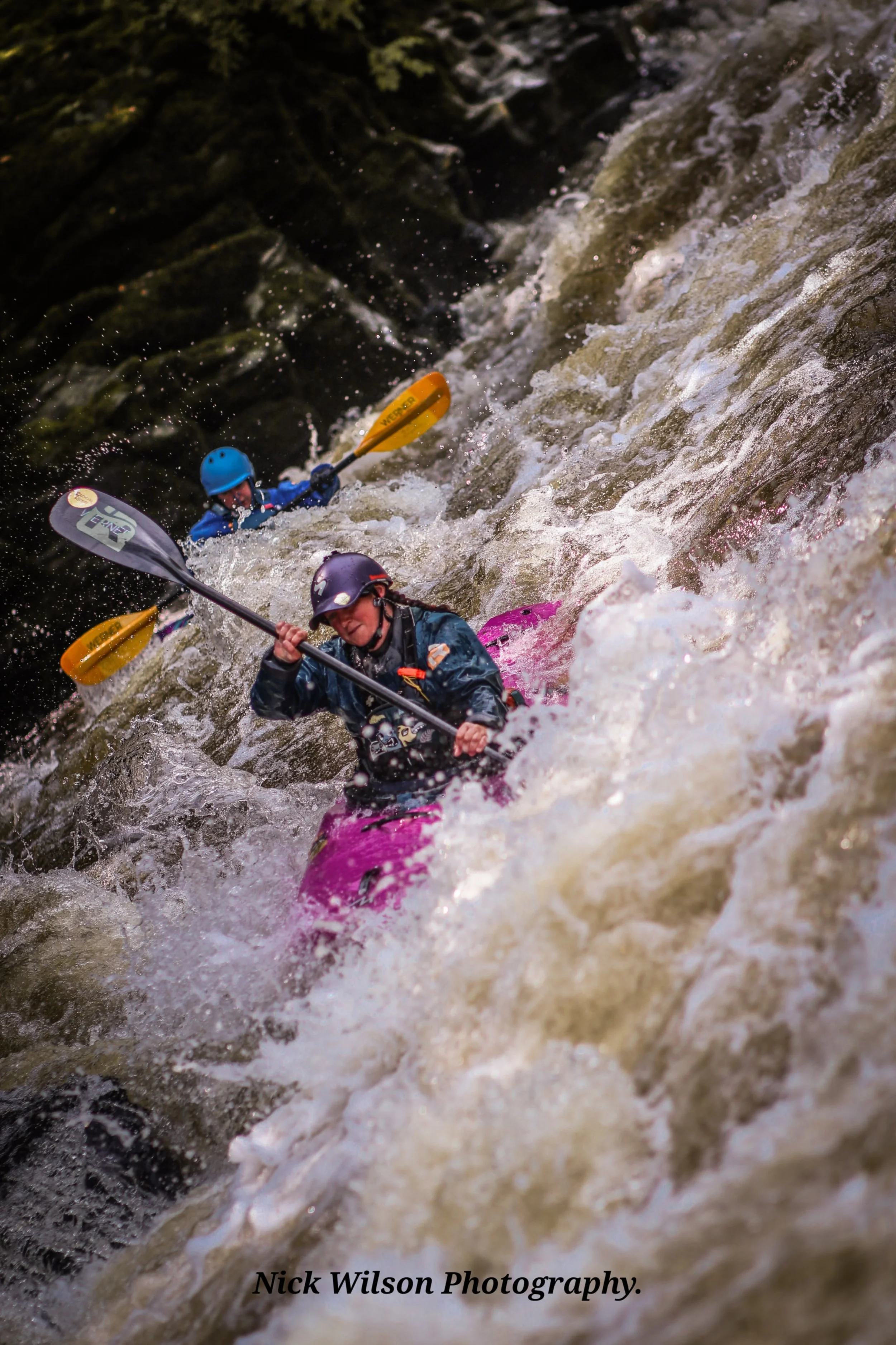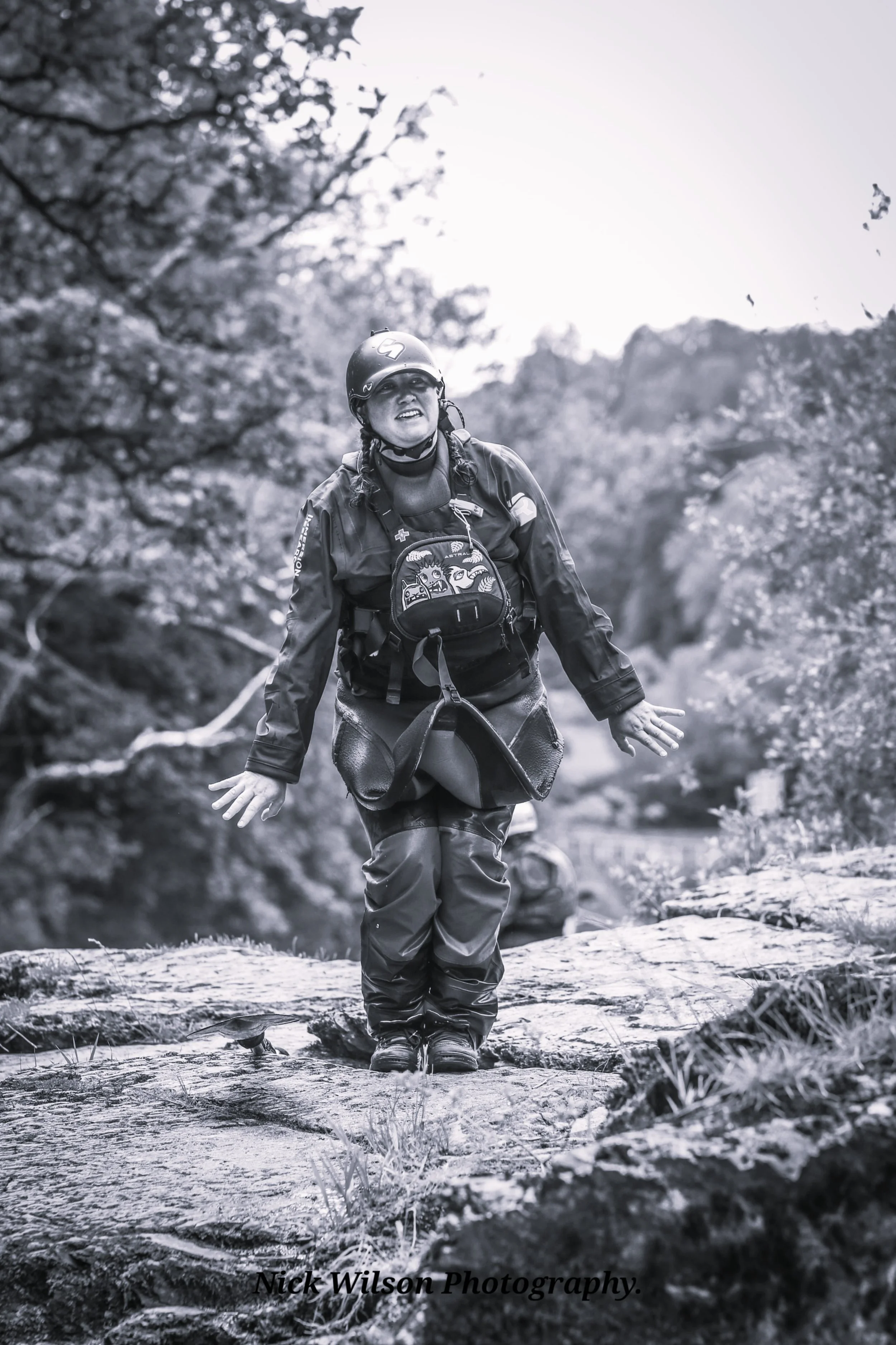#ShePaddles2025
It was an absolute pleasure this month to work for the third consecutive year at the #ShePaddles Festival at Canolfan Tryweryn. This weekend long festival aims to bring together like minded female paddlers for a weekend of high-quality female specific coaching from a range of top providers, as well as talks and a range of other fun. For me, it’s a great opportunity to meet clients old and new and get together with other incredible female coaches from around the country. It’s just genuinely a brilliant, positive and inspiring weekend and a favourite on my calendar.
But a question I often get asked is why? Why do we need women’s specific coaching courses? Why do we need #ShePaddles? In my opinion, the answer is obviously complex but could perhaps be described as this – to create a culture of women in kayaking, and to recognise the importance of specific coaching pedagogies actually aimed at women.
Creating a culture that encourages and supports female paddlers is an interesting one. Kayaking is a hugely diverse community, comprising of people from a wide range of different backgrounds and experiences. That being said, there are definitely very specific trends. Having paddled now for 30 years, in that time, I was often the only girl in every group. In 2018 an initiative called #ShePaddles, started by British Canoeing (now Paddle UK) decided to try and even things up. Female membership at the time was only 28% - just under three in every ten members. This wasn’t just a trend seen in kayaking - Sport England reported that there were 2 million fewer women than men regularly participating in sport and exercise.
Societal pressure is a major factor. There are notable differences between women and men and the way they conduct themselves, and pressures that discourage women in many areas of life, including kayaking. Sexism isn’t subtle, it’s systematic, and mansplaining and condescension chip away at confidence. Imposter syndrome often becomes the logical response to being constantly underestimated. Research backs this up – reports show that women are interrupted 33% more than men in professional settings, that ‘mansplaining’ is not merely a trending social media phenomenon, but a form of mistreatment pervasive in modern life, that gender stereotyping is alive and kicking, with girls as young as five years old believing that they don’t belong in sport.
One initial challenge with the #ShePaddles initiative was to persuade the club volunteers/committee that there was and still is a need to change behaviours and club practices to be more inclusive. They aimed to overcome this initial resistance by creating the Champion Club Programme, focusing resources on developing members' knowledge and understanding of the barriers and motivators of women’s engagement. I have seen this have huge success and am delighted to coach a number of women who are pushing this in their own clubs, with strong conviction for the part they can play in encouraging others. It was however disappointing to hear at the festival, their experiences of some male coaches still struggling to see the need and get on board, relinquishing some of their own leadership opportunities.
Lots of the women I meet through this festival, and the other female specific coaching I do have had significant ‘scary’ experiences which have affected their confidence on the water. It could be said that the root cause of these awful, horrifying and often ridiculously dangerous experiences boil down to the actions of a man – often a largely well-meaning but authoritative club or university leader. However, I think the thing that hits home for me when hearing these stories, is that the women generally knew it was going to be a shit show all along. They knew the river was high and rising, it was absolutely freezing, the group didn’t have enough experience, or the right kit. So why didn’t they say before they set off?! Well, it’s hard isn’t it. It’s really hard as a woman to put your opinion out there against others, and to go against the flow of what you are being told by someone who is perceived to be a ‘better paddler’ or a ‘proper coach’. And it’s hard when the scenario in your head has played out in real life to not then feel guilt or like a failure for having let it happen.
The #ShePaddles festival aims to bring together women to discuss and reflect on these situations in a safe place and to find a way of turning them into positive learning experiences. One of the things I highlight in my coaching is about finding your voice and having the confidence to have autonomy over your own experience; Recognising your own knowledge and seeking to understand what is happening and why. This is a powerful tool. If that person in charge of your day isn’t interested in hearing your concerns, and discussing their decisions openly and honestly, then maybe they’re not the right person to be getting on the river with.
I believe it’s also crucial that we recognise the importance of specific coaching pedagogies for women. In simple terms, pedagogy is how knowledge and skills are imparted by a coach. It’s formed certainly by their own experiences, the context in which they’re coaching and the syllabus being provided but also by the needs of the learners in front of them. And essentially, women have different learning needs to men, and female coaches largely teach to those needs differently. Men tend to be more direct and task oriented whereas women often emphasise empathy and interpersonal communications. Great coaches have known for a long time that they should adapt their communication styles to match their clients, fostering an environment where they feel understood, valued and supported. But perhaps male coaches just don’t have the innate ability to do that for women in the same way female coaches do?
Women also have inherently different biological differences in terms of muscle mass, body composition and hormonal profile and this effects the way they are able to both move on the water and deal with heavy equipment. Understanding hormonal profile is something I really want to highlight as an area which needs to become part of our day-to-day coaching language. Unlike men, women experience significant hormonal changes both throughout the month and throughout life. These hormonal fluctuations affect participation, strength, endurance, and recovery times. For a start - periods and their effect on women’s abilities to participate in paddlesports and gain from coaching experiences: Periods, particularly when heavy, can cause iron deficiency anaemia due to the blood loss, leading to shortness of breath particularly during exertion, fatigue and weakness, headaches and dizziness, and heart palpitations. Obviously, none of this is particularly ideal when kayaking. Take iron supplements you say… yeah well they often give you constipation so… pick your battle! Periods require planning for and packing in/out a wide range of additional resources such as tampons, wet wipes and disposal bags - difficult to manage just on a day’s river trip but now imagine this in a group self-supported multi day expedition where every ounce counts.
The impact of our hormones on our paddling life just doesn’t stop as we get older. I’ve been running courses recently highlighting the impact of peri/menopause on our kayaking experience. Perimenopause is called a transitional phase, but it can last for several years, filled with fluctuating hormone levels causing fatigue, reduced muscle mass and bone density/joint health, weight redistribution. Crucially, it also affects women’s ability to perceive and work with risk, an area which is a common factor in sports such as kayaking. The combination of physical and psychological factors inherent in peri/menopause often lead to a decrease in self-confidence, and heightened fear of injury and negative self-talk. The rapids simply appear ‘scarier’ than they might have before, and adding in social stigma can also then lead to women simply determining that they are ‘past it’ and walking away from the river. It’s very hard to reframe this as that our brain is trying to look after us, and that whilst our attitude to the water may have changed, we still deserve to be there.
Another area that specifically affects women’s paddling experience is the needs of balancing family life, often described as ‘the hidden load’. When it comes to household responsibilities, numerous studies show that women are still doing the bulk of the household work and childcare. I wonder if perhaps, the demands of modern life are causing gender equality to stall or even reverse, despite the levels of discussion surrounding it. In order for a couple to ‘have it all’, someone has to organise it all. And these socio-economic demands have created an imbalance of cognitive and emotional labour which generally lands on women. We’ve all seen it in paddling couples who have children and attempt to balance this alongside having a home, working and continuing to find time on the river. Often, it’s the woman that ends up slowly dropping out of the sport in order to balance childcare and family life.
The Lottery funded initiative This Girl Can report that another of the top barriers women face in sport is struggling to find kit that is genuinely designed to fit women’s bodies. As part of the #ShePaddles festival at the Tryweryn, on-site retailer Radical Rider are on hand to offer support and advice and carry a huge range of women’s specific kit from a range of brands. They’ve had years of experience helping me negotiate my boobs, fluctuating hormonal weight over different life stages, and the difficulties of being a girl having periods/a wee into a range of kit to keep me warm and dry whilst coaching. Most recently providing my beloved Immersion Research dry suit which has to have a bit of a shout out for fitting a proper female shape and actually being dry.
These areas remain very much ‘women’s experiences’, no matter how understanding or sympathetic a man wants to be about it. And great coaching for women has to be about creating a learning environment which truly aligns with their unique physiology, hormonal patterns and life stages.
Paddle UK report that female membership has continued to grow since the start of the initiative, with female membership now 37.8%. The number of women in leadership roles has also increased with women making up 26% of British Canoeing's qualified coaches and leaders. It feels like the efforts put in, including events such as this #ShePaddles Festival might just be having an effect.
A big thank you must go out to Annette, who organises this festival on behalf on Canolfan Tryweryn and continues to recognise my worth and employ me year after year. She brings together women from all over the country and creates a safe, welcoming and exciting festival which I know has made a huge difference to lots of people. This year we had a really tricky one with the water release at the Tryweryn being unexpectedly cancelled for the Friday and Sunday. Obviously moving a huge event like this at such short notice is no easy logistical task and I was delighted to be part of the strong team of coaches around Annette, keen to offer help and solutions. Our merry tribe of epic female participants were also happy to be flexible and have a great time whatever happened. Thankfully we were able to make contingency plans happen and move over to the Dee Valley, with TNR quick to offer their support for female paddlers and women’s events by waiving fees and providing a pizza party.
And I completely understand that this blog piece could immediately be described as full of gender bias, preconceived notions and stereotypes, but please bear in mind it is an opinion piece and somewhat designed to promote conversation. These women specific events are not a space for man hating or for pissing about cheering each other on for stuff that isn’t actually very good. They’re a space that creates opportunities to bring more women into paddlesport in a safe haven surrounded by ambitious and inspiring female role models. A space to create a culture of strong, independent and resilient women who are empowered to voice their own opinions, backed by knowledge, and have autonomy over their own experience. A space to recognise the need for and value of coaching that’s truly designed by women and for women’s physical and hormonal needs. Above all, just a space to have a really joy filled time on the river with other brilliant women.
